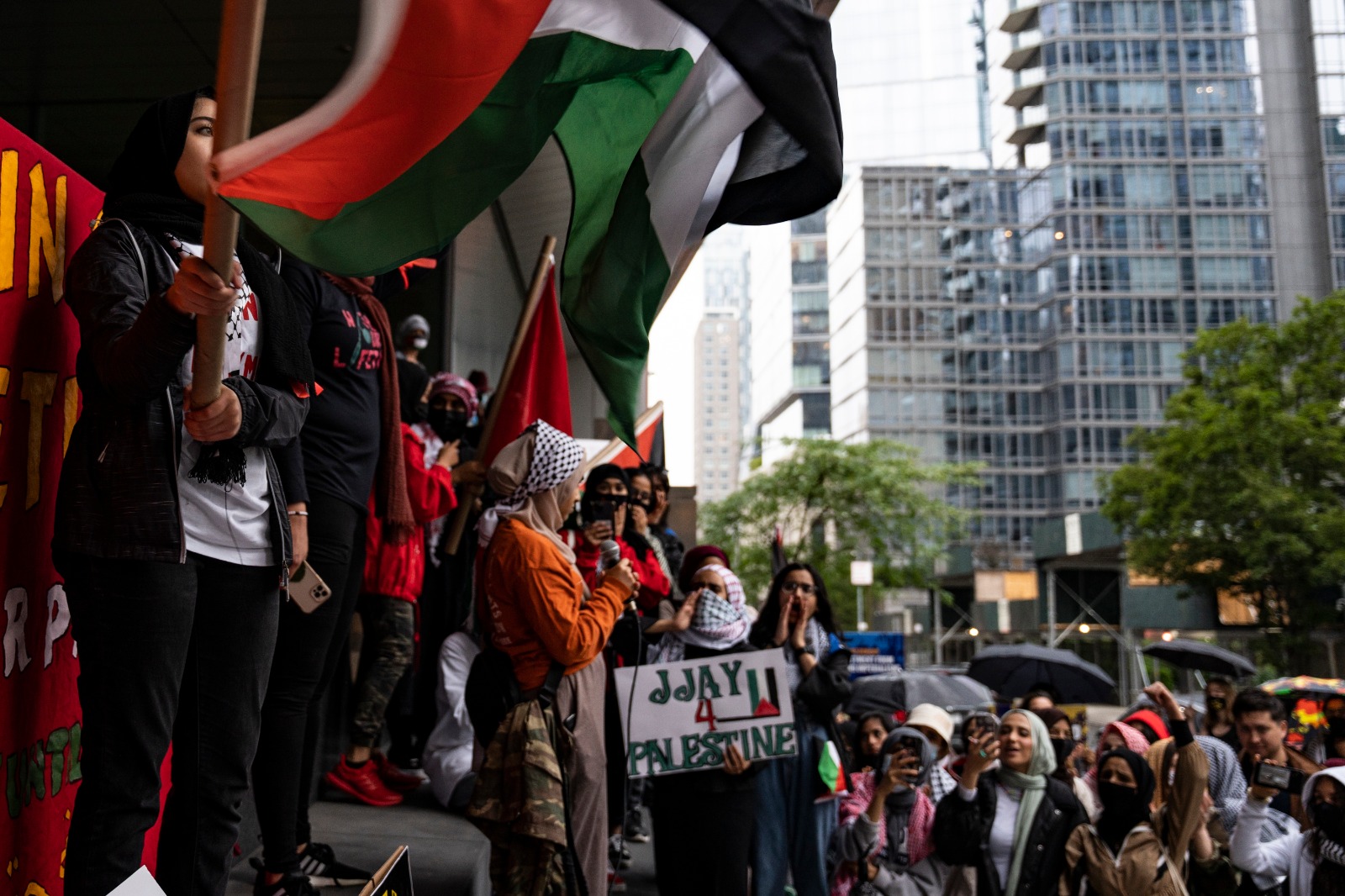Rank-and-file activists in CUNY’s faculty and staff union fought against bureaucratic machinations to pass a resolution calling for internal discussions of BDS and demanding that Joe Biden end all aid to Israel and other countries participating in human rights violations.

On Thursday, June 10, the delegate assembly of PSC-CUNY, the faculty and staff union at the City University of New York, considered two resolutions in support of the Palestinian people. This resolution comes in light of the May 2021 bombings in Gaza that resulted in the deaths of at least 274 Palestinians (including 71 children) and the injury and displacement of tens of thousands more. Despite union leaders’ attempts to minimize and hollow out the content of the original, more combative resolution, the assembly passed a version explicitly describing Israel as an apartheid state, calling on chapters to discuss support for BDS, and demanding that the Biden administration end all aid funding human rights violations and the occupation of Palestine.
The original resolution, which Left Voice covered earlier this week, was co-sponsored by the union’s anti-racist committee, international committee, and academic freedom committee. It included a demand for CUNY to divest from Israel, support for BDS, and a demand for the AFL-CIO to break off all relations with the Histadrut, the Zionist labor federation that the Palestinian trade unions specifically mention in their call for BDS.
Almost immediately after the resolution was introduced, James Davis, the new union president, proposed a substitute resolution, which would take precedence over and replace the original. The substitute, authored by the union’s executive council, lacked almost all of the provisions of the original, simply “condemning the massacre of Palestinians by the Israeli state” and calling for “discussion” in chapter meetings about how to “influence U.S. policy in Israel.” This bureaucratic maneuver prevented the original and much stronger resolution from being discussed at all.
Rank-and-file activists came prepared with a series of amendments intended to add as much of the original resolution’s content as possible and fix some shortcomings of the original (which did not include any provisions about U.S. aid to Israel, for example). Every proposed amendment passed, although the time allotted for discussion ended before every prepared amendment could be brought to the floor. The final version, including the amendments, passed 84-34. All four principal officers of the union leadership voted against it.
This resolution makes PSC-CUNY, which represents about 30,000 workers, one of several unions in the United States to take action against Israeli oppression of Palestinians, including fellow educators from the United Teachers of Los Angeles and the United Educators of San Francisco. The chapter chairs in LA who passed the UTLA resolution are already facing backlash from union leadership. Several CUNY delegates expressed concern about possible consequences of such a controversial resolution, including increased difficulty in obtaining more funding for the university at the city and state levels. But resolutions like these are important steps in building international solidarity among workers against Israeli apartheid and U.S. imperialism. Furthermore, they can be useful tools to generate discussion around a union’s responsibility to its community and its ability to effect change beyond the workplace. However, more action is required. First, given the bureaucracy’s opposition to the resolution, rank-and-file activists must remain vigilant of attempts to bury it or limit its implementation, and fight for its provisions to be carried out. Second, statements about BDS must be followed up with mobilizations to support Palestine.
As the statement Left Voice published in support of the original resolution says, “No single resolution will end the oppression of Palestinian people and the occupation of Palestine, and no single resolution is capable of transforming the PSC CUNY into a real fighting union, but taking a stand on this issue and defending the self-organization of the rank-and-file members who created this resolution is a first step toward those goals.”
